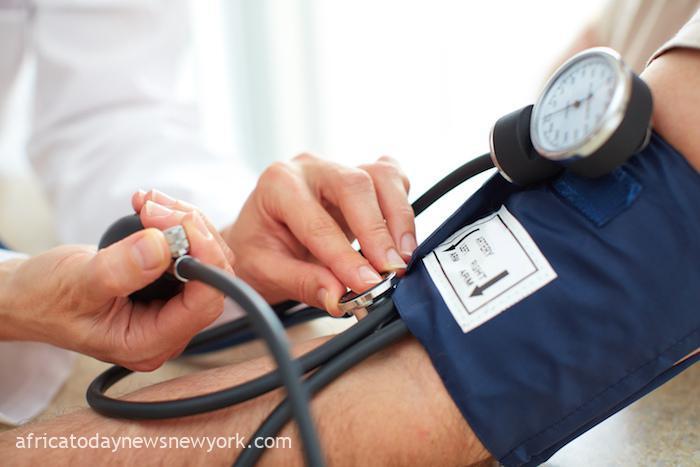The World Health Organization (WHO), On Tuesday unveiled its first report that sheds light on the far-reaching global effect of high blood pressure. This comprehensive report also offers vital strategies to prevail over this silent adversary, stressing that half of those living with hypertension are unaware of their condition.
Furthermore, the report points out that with enhanced coverage of interventions, countries have the potential to prevent a substantial 76 million deaths between 2023 and 2050.
According to the WHO report, one out of every three adults around the world experiences hypertension.
‘This common, deadly condition leads to stroke, heart attack, heart failure, kidney damage and many other health problems.’
‘The number of people living with hypertension (blood pressure of 140/90 mmHg or higher or taking medication for hypertension) doubled between 1990 and 2019, from 650 million to 1.3 billion.’
‘Nearly half of people with hypertension globally are currently unaware of their condition. More than three-quarters of adults with hypertension live in low- and middle-income countries.’
The report has identified that while older age and genetic factors can contribute to the likelihood of high blood pressure, it’s equally crucial to recognize that modifiable risk factors like excessive salt intake, physical inactivity, and heavy alcohol consumption can also raise the risk of hypertension.
Additionally, the report suggests that making lifestyle adjustments, including adopting a healthier diet, quitting smoking, and engaging in regular physical activity, can contribute to the lowering of blood pressure.
‘Some people may need medicines that can control hypertension effectively and prevent related complications.’
‘The prevention, early detection and effective management of hypertension are among the most cost-effective interventions in health care and should be prioritised by countries as part of their national health benefit package offered at a primary care level. The economic benefits of improved hypertension treatment programmes outweigh the costs by about 18 to 1.’
In response to the report’s revelations, Dr. Tedros Adhanom Ghebreyesus, Director-General of the WHO, underscored that the effective control of hypertension is achievable through cost-effective medication plans. He lamented the fact that only around one in five people with hypertension currently have their condition managed.
‘Hypertension control programmes remain neglected, under-prioritised and vastly underfunded. Strengthening hypertension control must be part of every country’s journey towards universal health coverage, based on well-functioning, equitable and resilient health systems, built on a foundation of primary health care,’ he added.
Launched during the 78th Session of the United Nations General Assembly, the report tackles the advancement of Sustainable Development Goals, which encompass critical health targets like pandemic preparedness, tuberculosis eradication, and the realisation of Universal Health Coverage. It further emphasises that enhanced prevention and management of hypertension are imperative for progress in all of these areas.
The report’s findings showed that by increasing the effectiveness of hypertension treatment to match that of high-performing nations, it could result in the prevention of 76 million deaths, 120 million strokes, 79 million heart attacks, and 17 million cases of heart failure by 2050.
In his capacity as WHO Global Ambassador for Non-communicable Diseases and Injuries, Michael R. Bloomberg highlighted that the majority of heart attacks and strokes in the world today can be mitigated with the use of low-cost, safe, and widely accessible medications and other interventions, such as reducing sodium in diets.
He said: ‘Treating hypertension through primary health care will save lives, while also saving billions of dollars a year.’
He said hypertension can easily be treated with safe, widely available, low-cost generic medications using programmes such as HEARTS.
Speaking, President & CEO of Resolve to Save Lives,Dr Tom Frieden said: ‘Every hour, more than 1,000 people die from strokes and heart attacks. Most of these deaths are caused by high blood pressure, and most could have been prevented.’
‘Good hypertension care is affordable, within reach, and strengthens primary health care. The challenge now is to go from “within reach” to “reached.” This will require commitment of governments around the world.’
